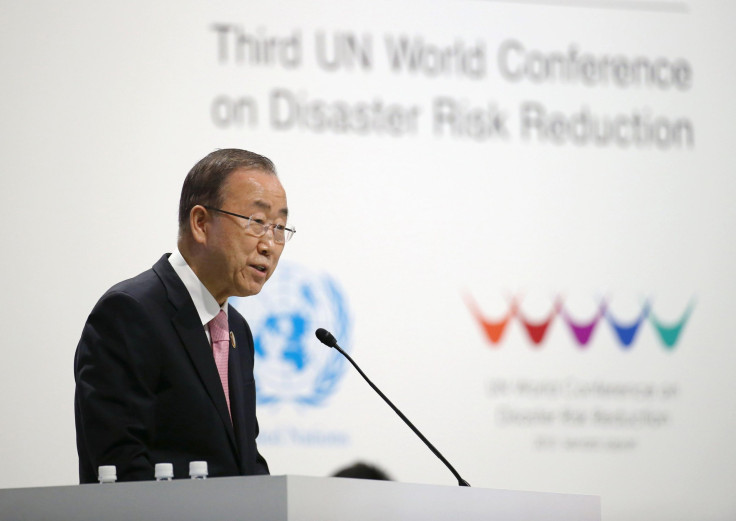World Leaders Gather In Japan For Once-In-A-Decade Conference On Disaster Risk Reduction

Annually, countries across the globe suffer losses of over $300 billion as a result of damages caused by natural disasters, making disaster risk reduction “everybody’s business,” United Nations Secretary-General Ban Ki-moon said in a speech at a U.N. conference in Sendai, Japan. The Third U.N. World Conference on Disaster Risk Reduction, which opened on Saturday, is being held after a gap of 10 years.
“We can watch that number grow as more people suffer. Or we can dramatically lower that figure and invest savings in development,” Ban said, adding that $6 billion allocated each year for risk management could result in savings of up to $360 billion by 2030.
Urging the implementation of better safeguards to mitigate the threat of climate-related disasters in developing states and coastal areas, Ban said there is a need to draft a new framework for managing disaster risk.
The aim of the five-day conference, which wraps up Wednesday, is to update the Hyogo Framework for Action -- a landmark agreement reached a decade ago in Hyogo, Japan, in the aftermath of the devastating Indian Ocean tsunami. The agreement details the work required from different sectors to reduce loss of life and property in a disaster.
“What we are discussing here is very real for millions around the world. We must keep their needs in sharp focus during the negotiations on this agreement,” Ban said, adding that disaster risk reduction is the first step toward ensuring sustainable development.
Margareta Wahlstrom, head of the U.N. Office for Disaster Risk Reduction, reportedly said that though there is a “general agreement” among world leaders that there is a need to move from managing disasters to managing disaster risk, opinions differ on how best to do that.
The U.N. conference comes against a backdrop of devastation wreaked across the Island nation of Vanuatu by one of the strongest tropical cyclones in the Pacific in recent years. Dozens are feared dead and hundreds have been rendered homeless after the Category 5 cyclone Pam made landfall in Vanuatu late on Friday.
“We are not yet clear on the impact, but we fear the destruction and damage could be widespread. I hope there will be minimal loss of life,” Ban said. “I extend my condolences to the people of Vanuatu and their representatives.”
© Copyright IBTimes 2025. All rights reserved.





















